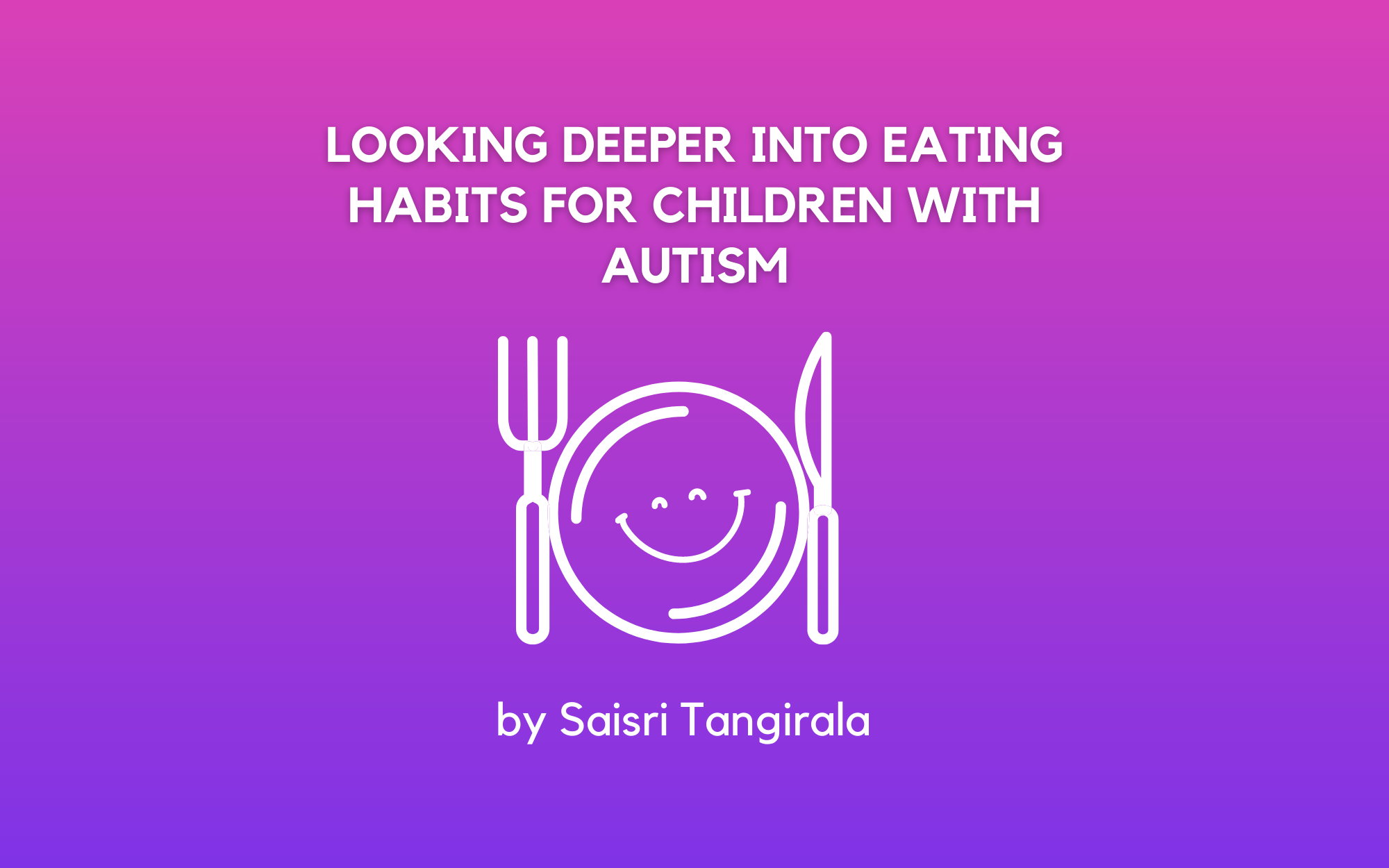Looking Deeper Into Eating Habits for Children with Autism
March 2022 • written by Saisri Tangirala • edited by Anshul Gupta

Eating Habits
The eating habits of a person with autism, such as eating only selected foods, can influence the physical and mental health. However, deciphering those habits and providing the needed support can help enforce a positive outlook towards eating all types of food.
A person with autism can encounter feeding issues early in their childhood, as a child is more likely to come across selective eating, preference for one food over another (such as snacks), and strong dislike of other foods. While these responses may be temporary in a child not on the spectrum, a child with autism may encounter recurring difficulties. For a child on the spectrum, common eating issues may also include difficulties with chewing and swallowing along with not being able to feed oneself due to varied motor skills. A child may also have an unwilling mindset to try foods of an unfamiliar appearance and texture. Said issues with food selectivity may affect healthy growth and cause nutrient deficiencies.

Seeking out the right care can help understand and overcome feeding issues. For instance, parents and children can work together to expand their diet and have a fixed structure and routine. This will make them feel comfortable when trying new foods. Children can also work with therapists to undergo feeding therapy. The main goal of feeding therapy is to look deeper into feeding issues and help children approach new foods with a positive attitude. Feeding therapy can be provided as a part of other therapies such as behavioral and occupational therapy. Behavioral therapy is another type of care that reinforces a positive attitude and works towards helping children feed themselves. The many care options offer helpful interventions.
A study published in September of 2020 explored how occupational therapy helped parents and their child to gradually get accustomed to spoon feedings from restrained syringe feedings. The case report showed how effectively occupational therapists evaluated eating habits in children on the spectrum and collaborated with family-friendly services.
Dani Bowman, Head of DaniMation Studios, has said, “Anything is possible! If I can do it, so can you!”
